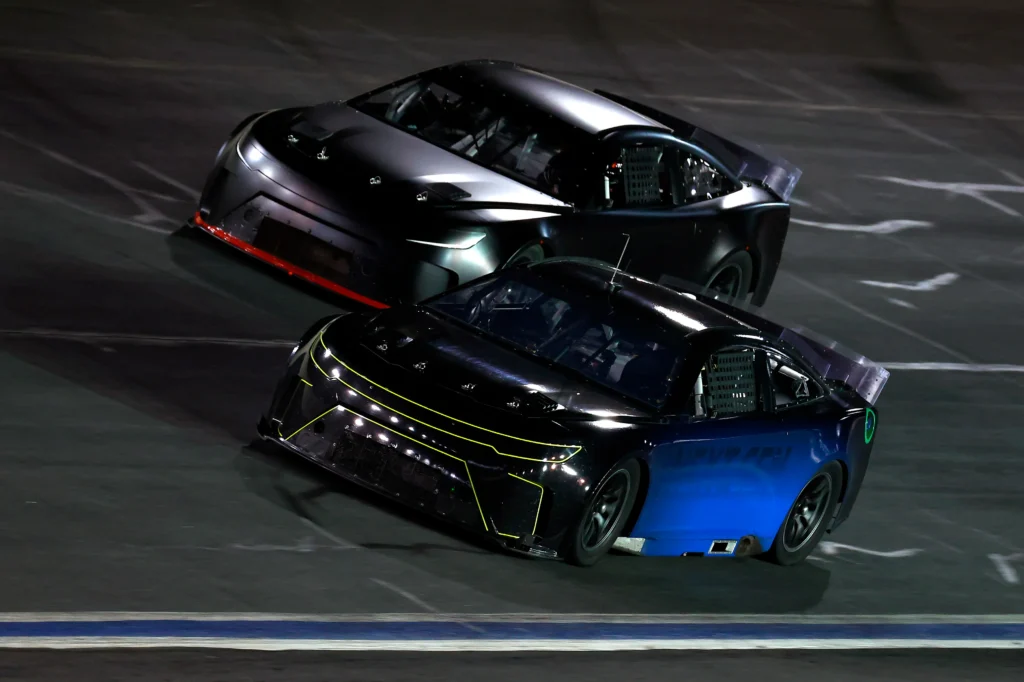
The roar of gasoline engines has long been synonymous with NASCAR racing. But the tide is turning, and the electric revolution is making its way to the checkered flag. NASCAR recently unveiled its prototype electric race car, the ABB NASCAR EV Prototype, sparking excitement and debate about the future of stock car racing. Let’s delve into the details of this electric revolution and explore what it might mean for NASCAR.
Nascar Electric Car Race: A Bold Step Towards a Sustainable Future
NASCAR’s foray into electric vehicles is a significant step towards a more sustainable motorsport future. With growing concerns about climate change, electric cars offer a cleaner alternative to traditional gasoline-powered race cars. The ABB NASCAR EV Prototype boasts impressive credentials, showcasing the potential for electric vehicles to deliver exhilarating performance without compromising environmental responsibility.
Unfamiliar Territory: Challenges and Opportunities
Transitioning from gasoline to electric power presents both challenges and opportunities for NASCAR. One key challenge lies in replicating the raw power and exhilarating sound that fans have come to expect from stock car racing. Electric cars, while incredibly fast, deliver their power differently, potentially altering the race experience. However, this also presents an opportunity to innovate and develop new forms of excitement for fans. The instant torque and silent acceleration of electric cars could create a whole new dimension of racing strategy and driver skill.
A Glimpse into the Future, Not a Replacement
It’s important to clarify that the ABB NASCAR EV Prototype is not an immediate replacement for traditional race cars. NASCAR emphasizes that it remains committed to the sport’s heritage and the role of internal combustion engines. The electric prototype serves as a test bed for exploring the potential of electric technology and its integration into future racing formats.
The Road Ahead: Innovation and Collaboration
The introduction of the ABB NASCAR EV Prototype signifies the beginning of an exciting new chapter for NASCAR. Collaboration with manufacturers and technology companies will be crucial in developing electric race cars that deliver thrilling performance while staying true to the spirit of NASCAR racing. This innovation can not only ensure a sustainable future for the sport but also attract new audiences interested in electric vehicles and clean energy.
The Verdict: A Positive Step Forward
While the future of NASCAR remains to be written, the introduction of the ABB NASCAR EV Prototype is a positive step forward. It demonstrates the sport’s willingness to embrace change and explore new horizons. Whether electric cars become a mainstay in NASCAR or not, this initiative serves as a testament to the sport’s commitment to innovation and its ability to adapt to a changing world. The roar of gasoline engines might be replaced by a different kind of thrill, but the spirit of competition and the pursuit of victory will undoubtedly remain at the heart of NASCAR.
When The First Nascar Electric Car Race
While the ABB NASCAR EV Prototype has generated excitement, there is currently no official announcement regarding the date of the first electric NASCAR race.
The text we crafted earlier reflects this by stating:
The electric prototype serves as a test bed for exploring the potential of electric technology and its integration into future racing formats.
NASCAR is likely evaluating the ABB NASCAR EV Prototype’s performance, gathering fan feedback, and collaborating with manufacturers before considering a dedicated electric race series or integrating electric cars into existing formats.
So, while we can’t pinpoint an exact date, the introduction of the prototype suggests electric racing could be part of NASCAR’s future, but it likely won’t happen overnight.
image: https://fox4kc.com/sports/nascar/nascar-will-use-electric-car-in-2023-demo-race-reports-say/
